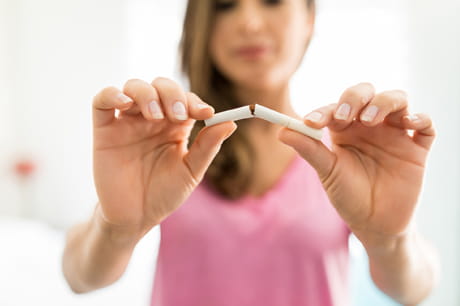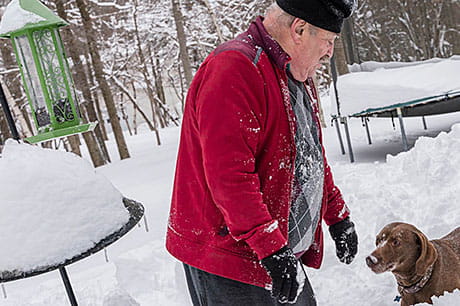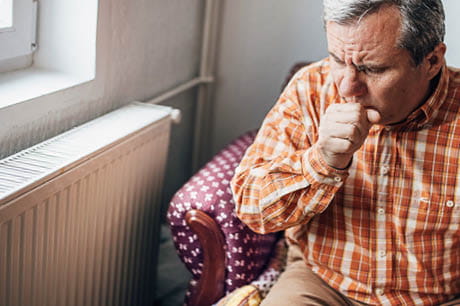Do you need a lung cancer screening?
This simple test can detect lung cancer earlier, when it’s easier to treat.
When you think about cancer screenings, a mammogram or colonoscopy may come to mind. But annual lung cancer screenings have become another important tool that can help detect lung cancer earlier.
In its early stages, lung cancer may not show any symptoms. That’s why, if you meet the criteria for getting screened, lung cancer screenings are key to early detection.
But is one right for you? Thoracic surgeon Matthew Facktor, MD, helps us take a closer look.
What is a lung cancer screening?
Lung cancer screenings are non-invasive diagnostic tests that can help detect cancer in its earliest stages. Whether you still smoke or you quit years ago, a lung cancer screening can help you stay on top of your health.
“As with other cancers, early detection of lung cancer can allow you to start early treatment,” says Dr. Facktor.
During the screening, your doctor will use a specialized scanner to take a detailed computerized picture of your lungs. This painless, low-dose CT scan uses 75% less radiation than a traditional CT scan.
The screening itself only takes a few minutes. And when the scan is over, you can go back to your regular activities right away.
Am I eligible for a lung cancer screening?
You're a good candidate for a yearly lung cancer screening if you:
- Are between age 50 and 80
- Have a 20-pack-year history of smoking (this means you smoked one pack a day for 20 years, two packs a day for 10 years or other variations. Your doctor can help you calculate your pack-year history.)
- Currently smoke or quit smoking within the last 15 years
If any of these describe you, you may be eligible.
Is it covered by insurance?
If your provider determines that you're eligible, a screening may be covered by your health insurance at no cost to you — but it’s always a good idea to check with your insurance first. And if you don’t have insurance, ask your healthcare provider for more information.
“Think of a lung cancer screening the way you would any other preventive exam,” says Dr. Facktor. “If you’re eligible, your provider can help you schedule a screening.”
What happens after a lung cancer screening?
After your scan, the results will be sent to your doctor. They’ll review the findings with you and answer any questions. If you need further testing, they will discuss any next steps.
“Your doctor will explain your options, whether that’s for more tests or future screenings,” says Dr. Facktor. “You’ll work together to create a plan built around your particular needs.”
Quit smoking to lower your risk of lung cancer
Quitting smoking is an excellent way to reduce your risk of developing lung cancer.
“While smoking isn’t the only factor that increases lung cancer risk, it’s certainly a big risk factor and something to take seriously when it comes to your health,” says Dr. Facktor.
Although the idea of quitting may seem challenging, it doesn’t have to be. Start by talking to your healthcare provider. They’ll work with you to develop a plan to quit smoking and help you find resources to be successful.
Remember, you may experience a few stops and starts along the way — and that’s OK. The important part is to keep going.
“If you’ve tried to quit in the past, it’s never too late to try again,” Dr. Facktor says.
Next steps:
5 things that happen to your body when you quit smoking
Learn about lung cancer care at Geisinger
Learn about pulmonology at Geisinger





